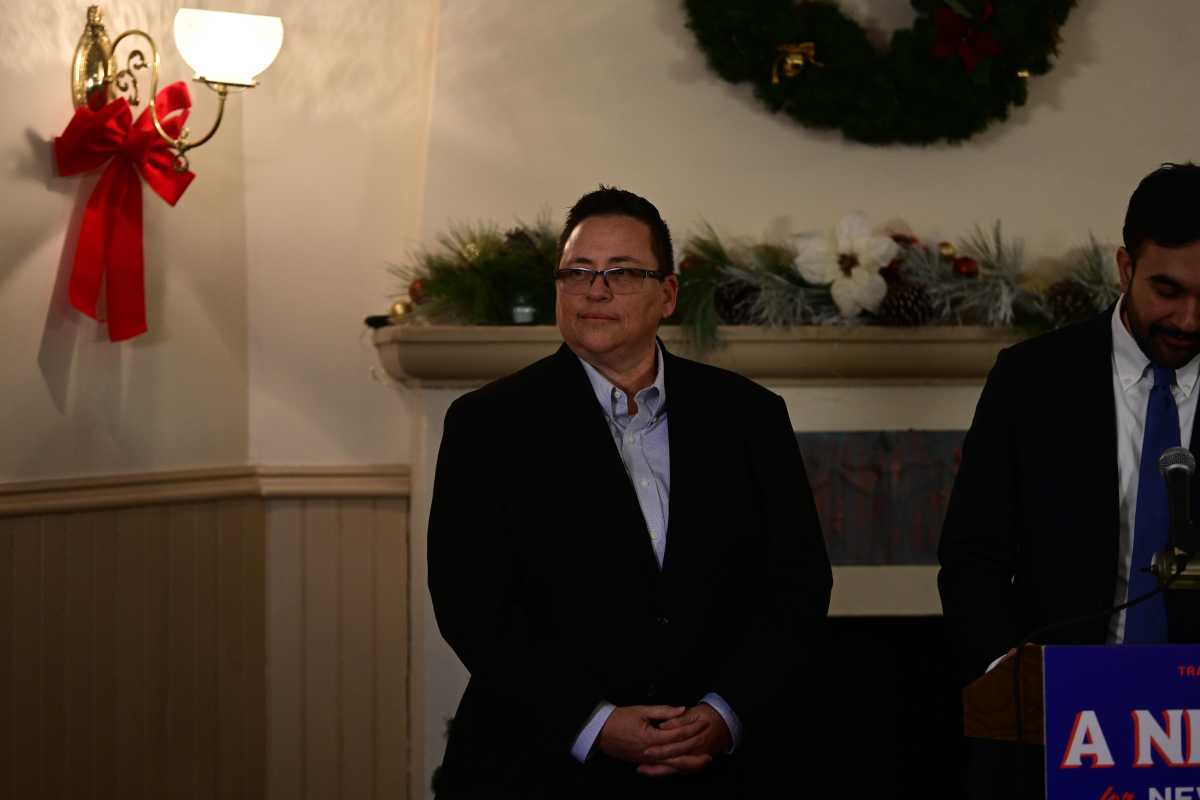Senator anonymously places hold on promotion of controversial general
Though Maj. Gen. Robert T. Clark’s promotion to lieutenant general seemed to grow increasingly likely in the wake of a favorable voice vote October 23 by the Senate Armed Services Committee, his prospects were once again thrown into doubt on November 5 when an anonymous senator placed a “hold” on the nomination, delaying for a final vote.
The move is the latest in a series of complications for Pres. George W. Bush’s controversial nominee.
Clark was commander of Fort Campbell, Kentucky. in 1999 when 21-year-old Pfc. Barry Winchell died after fellow soldiers who believed he was gay beat him with a baseball bat.
Two of Winchell’s fellow soldiers were convicted in his murder, but his mother and step-father, Pat and Wally Kutteles, have argued that the Army has not accepted full responsibility for their son’s death, which they say was caused by the Don’t Ask, Don’t Tell military policy and official neglect. They have specifically charged that Clark should be held accountable for his failure of leadership.
In July 2000, the Army inspector general cleared Clark and other officers at Fort Campbell of any wrongdoing, despite the substantial evidence of harassment and official neglect presented at the trial.
Bush originally nominated Clark in the fall of 2002, but Senate Democrats then in the majority never scheduled a vote.
When the new Republican-led Congress convened in 2003, Senator John Warner of Virginia, the new Armed Services chair, further delayed the vote after committee Democrats, including New York’s Hillary Rodham Clinton, Massachusetts’ Ted Kennedy, and Hawaii’s Daniel Akaka, raised concerns about the nomination.
In a private meeting with Warner earlier this year, the Kutteleses were successful in convincing him to delay the committee vote until after they had a chance to pose specific questions to Clark. John Ullyot, a committee spokesperson, told Gay City News in May, “[Warner] will ask the Army to respond and make that response part of the record. He wanted to give the family every opportunity to lay out their concerns and offered to meet with the family again after a response is received from the Army.”
The October 23 vote by the Armed Services Committee was not recorded and only three senators––Clinton, Kennedy, and Akaka––made public statements about their votes, all of them opposing Clark.
“After a review of General Clark’s record, Senator Clinton found he did not posses leadership abilities for a promotion to lieutenant general,” Jennifer Hanley, press secretary to Clinton told Gay City News. “Consequently she opposed General Clark’s nomination in the Armed Services Committee.”
Given the positive committee vote, however, observers, including the Servicemembers Legal Defense Network (SLDN), expected a quick and favorable vote for Clark by the full Senate.
“It is exceptionally rare in a vote of this type to be delayed,” said Steve Ralls, an SLDN spokesperson.
But Wednesday, in an unprecedented action regarding a military nomination, a hold was put on the Clark nomination. A hold is anonymous unless the senator who initiated it decides to make his or her action public.
“We may never know who placed the hold,” Ralls said.
The offices of Senators Clinton, Kennedy, and Akaka all denied placing the hold.
The hold will prevent the nomination from going to a vote unless the senator who initiated it releases it or another senator calls a vote to release the hold, putting the nomination back on the Senate’s schedule before its session ends November 21. In that event, however, there will be a record of senators’ votes, at least on the question of the hold, rather than the more customary voice vote.
According to SLDN, no matter how the Clark matter is resolved, the effort to block his nomination has already yielded positive results.
“The real victory has been that General Clark has been held accountable for what happened under his watch,” Ralls said. “It was heard within the Pentagon that anti-gay leaders no longer get a pass with these nominations.”
Ralls said that out of the scores of military nominations submitted to the Senate during each Congress, Clark’s is the first one in recent memory to be held up.

































